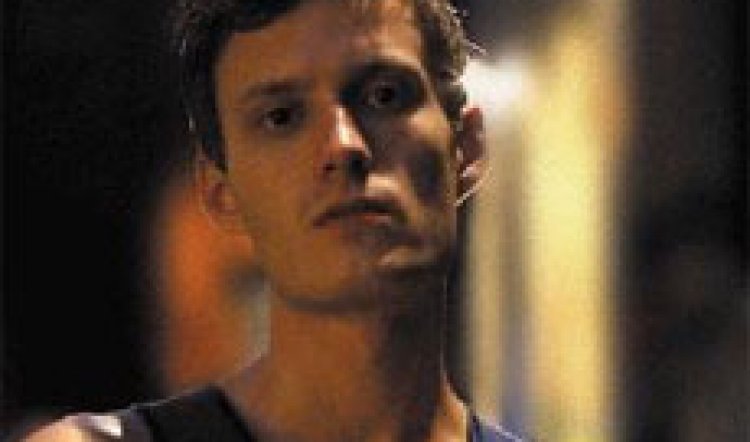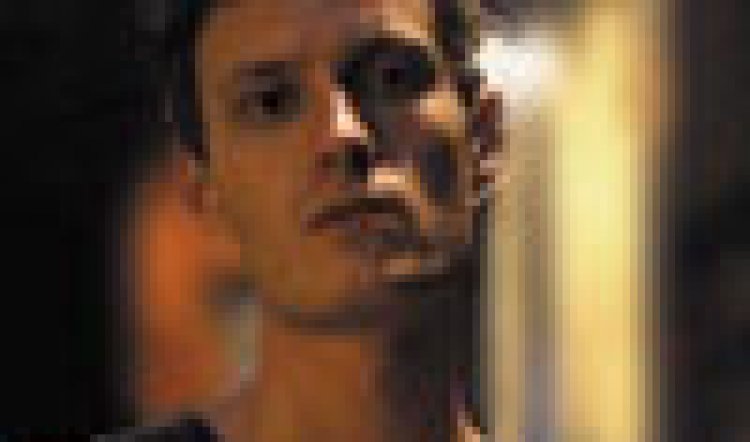
The Kid
The Kid, SBW Stables,19 March-26 April 2008; Ph: 1300 306 776 or www.griffintheatre.com.au
Michael Gow has come a long way since The Kid was first staged in 1983 at the then Nimrod Theatre (now this very same SBW Stables, home of Griffin Theatre Company). The shy, angry lad from The Shire is now one of Australia’s best-known and respected playwrights and a stage director whose work at the helm of Queensland Theatre Company has earned him more plaudits in that sphere of activity.
Fascinating then to experience the early work of the raw, gawky lad who had so much to say and so furiously said it. Twenty-some years is a long time in playwrighting as it is in growing up and Gow is a much smoother and more accomplished writer nowadays – as one might hope and expect – even though he still has the same concerns and preoccupations.
The Kid is a rite-of-passage, coming-of-age drama that sees naïve young Donald (Eamon Farren) thrown into seedy city life with a bunch of lowlifes, Snake (Emma Palmer), Aspro (Andrew Ryan) and Dean (Akos Armont). In many ways they’re all over-grown kids with the jealousies, insecurities and nyagh-nyagh-nyagh responses to secrets told and promises broken.
The only clue to their “adult” status is that the back of the bikeshed has given way to a grotty flat in Kings Cross, but the loyalties, aggro and passionate crushes are still the same.Snake and Dean are taking their brother Aspro on a quest to secure his compo. He was brain-damaged after being hit by a bus and their aspirations and future dreams rest on the riches they imagine are in store.
Fate has other ideas: their aunty no longer lives where she was last time they came to the city. It turns out she has died, their secure bolthole is now occupied by a stranger. It will come as no surprise to learn that compo is also a chimera.
As, bit by bit, the dream crumbles, the group simultaneously clings together and splits asunder. Donald’s own tentative hopes are raised and dashed by the push-pull teasing of Dean in a display of classic homo-erotic cruelty.
The Kid is rough around the edges and as clumsy as might be expected of a first major play. But it probably isn’t as rough or clumsy as this production suggests. There are good perfmances to be savoured, particularly Andrew Ryan’s Aspro (the tablet he continually swallows for his blinding headaches).

Aspro is a volatile mixture of child and man made dangerous by injury, pain and the brutishness of a society that wants nothing to do with him. Ryan flares into alarming rages, then subsides into heart-rending helplessness with just the right measure of energy and pathos. His is the standout performance in the standout role.
Kelly Butler undertakes multiple role whose common theme is women at the end of their respective tethers; with more distinct costumes this would have been an easier ask, but she is terrific anyway. Mark Pegler is good at looking ominous and creepy, which proves he’s a fine actor, but he has little else to do here. Akos Armont and Emma Palmer are chilling as the smoulderingly angry brother and sister who know there is something rotten in society, but are ill-equipped by that society to deal with it.
The kid himself – Donald – is more problematic. Eamon Farren is an ethereally, almost otherworldly beautiful young man who plays, or has been directed to play, Donald as an enigmatic cipher (think Tadzio in Death in Venice). Unfortunately, 1980s metro Sydney is not Venice and gazing pensively at scenes of grungy youth being obnoxious doesn’t make quite the same romantic picture. Instead, he sometimes appears to be vying with Aspro for portraying some kind of obscure mental deficiency.
They are not helped by a set (Gabriele Logan) and lighting (Luiz Pampolha) that evokes Banksy-style graffiti for reasons that never become apparent but, in the main, fail to differentiate between the various spaces the players are supposed to occupy. The result is a sequence of puzzles for an audience that distracts from the human drama.
And in the end, the human drama is a confusion of motives and styles which suggest that director Tom Healey had several ideas for the play’s staging and decided to use them all. See it for historic reasons and for some fine performances: just don’t expect them to be on the same stage or page, despite some evidence to the contrary.



